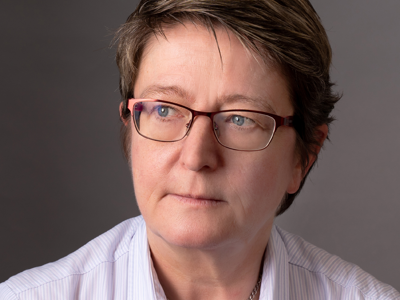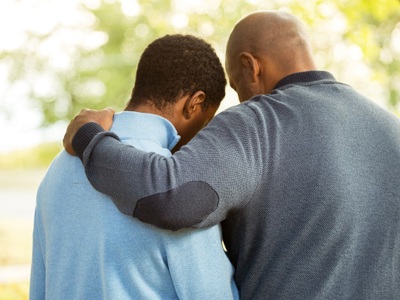
Families call for Hillsborough-model inquests into deaths of loved ones at Gosport War Memorial Hospital
Families whose loved ones died while in the care of shamed Gosport War Memorial Hospital have issued a call for Hillsborough-model judge and jury inquests.
Posted on 05 February 2021
The families say that repeated ineffective investigations into hundreds of deaths at the Hampshire hospital have left families without any justice or closure.
Five families are calling for a first or fresh inquest into the deaths of their loved ones at Gosport War Memorial Hospital.
If the Hampshire coroner and the Attorney General agree to the requests, then the families’ solicitor will write to the Chief Coroner to ask that the inquests be held all together as an Article 2 inquest with a much wider scope than a standard inquest to look at the role of all individuals and institutions involved and that a judge and jury are appointed, rather than it being conducted by a coroner.
In 2018 the Gosport Independent Panel report was published. The Report concluded that the lives of more than 450 people had been shortened because of the routine practice of prescribing and administering opioids until the year 2000 at Gosport War Memorial Hospital in Hampshire and that probably at least another 200 patients were similarly affected.
A previous inquiry in 2013 left a number of questions “unanswered”, said former Bishop of Liverpool James Jones, who led the 2018 review that involved discussions with over 100 families and examined 833 death certificates.
Inquests in 2009 and 2013 concluded that care led by Dr Jane Barton, who was in charge of prescribing medication on the wards, had contributed to the deaths of six patients.
However, only 11 inquests in total were carried out in relation to over 800 death certificates completed by Dr Barton who was found guilty of “serious professional misconduct” in 2010 but was not struck off.
Now Leigh Day is working with families to ask the coroner to hold inquests into the deaths of four individuals who died at Gosport War Memorial Hospital where there has been no inquest to date.
Leigh Day is also asking the Attorney General to ask the Court to authorise a fresh inquest on behalf of one client who had one of the original 10 inquests on the basis that the earlier inquest into the death of a Gosport War Memorial patient was flawed and ineffective.
- Clifford Houghton died aged 71 after he was admitted to Gosport War Memorial Hospital in February, 1994, for what was meant to be a period of respite to enable his wife to have a rest. He died on the same day he was given two doses of diamorphine because of “deterioration”. The 2018 review panel concluded that Mr Houghton was given opioids without appropriate clinical indication. His stepdaughter Pamela Byrne believes there is reason to suspect her stepfather died a violent or unnatural death, which triggers a statutory obligation to investigate through an inquest.
- Mrs Dulcie Middleton died aged 86 in September, 2001, three months after she was admitted to Gosport hospital for rehab following a stroke. Her nephew and daughter, David Wilson and Marjorie Bulbeck, say Mrs Middleton’s treatment at the hospital was neglectful and inhumane, she was not assisted with food and became dehydrated and was denied basic nursing care. Her family are asking for an inquest into her death.
- Eva Page was transferred to Dryad Ward in the Hospital from Queen Alexander (Portsmouth) on 27 February 1998. She was 88 years old. Mrs Page was prescribed morphine and given her first dose on 2 March 1998 and another dose on 3 March 1998. In addition, she was prescribed Midazolam and received Fentanyl through a skin patch. She died on 3 March 1998. Having considered the circumstances of her death, it was concluded in the Report that Mrs Page’s case was a case of opioid usage without appropriate clinical indication. Her family are asking for an inquest into her death.
- Arthur Denis Brian Cunningham died aged 79, five days after he was admitted to Gosport hospital on 21 August, 1998 for treatment of a sacral sore. He was given increasing dosages of opiate analgesics over the course of his short stay. An inquest was held into his death, but Article 2 was not engaged and now his family argue that the first inquest was not comprehensive, it was unfair, prejudicial, and that the coroner’s decision not to leave the conclusion of unlawful killing or an open verdict to the jury was wrong. They have written to the Attorney General to ask her to apply for a fresh inquest into Mr Cunningham’s death.
The findings of the panel report illustrate serious operational failures to protect lives, and more generally, the Hospital was systemically or structurally dysfunctional in its failure to protect the lives of vulnerable patients – far beyond mere error or medical negligence. The families will argue that the Report’s findings suggest breaches of the families’ rights under Article 2 ECHR.
The families hope that the legal path that followed the Hillsborough Inquiry will serve as a model for them in that eventually it was agreed that fresh inquests should be held into the deaths of the victims.
The five families are represented by Leigh Day partner Emma Jones, who said:
“The ultimate aim is to try to get something akin to the most recent Hillsborough inquests – with a judge and jury. The path is similar – both tragedies have had families campaigning for decades for truth and justice on behalf of their deceased loved ones. The families have faced ineffective and closed investigations that were poor. There had been earlier inquests that were not fit for purpose. Then followed an independent report into each matter. Following the Hillsborough Report, fresh inquests were ordered. We hope to get to that place for the families.”



